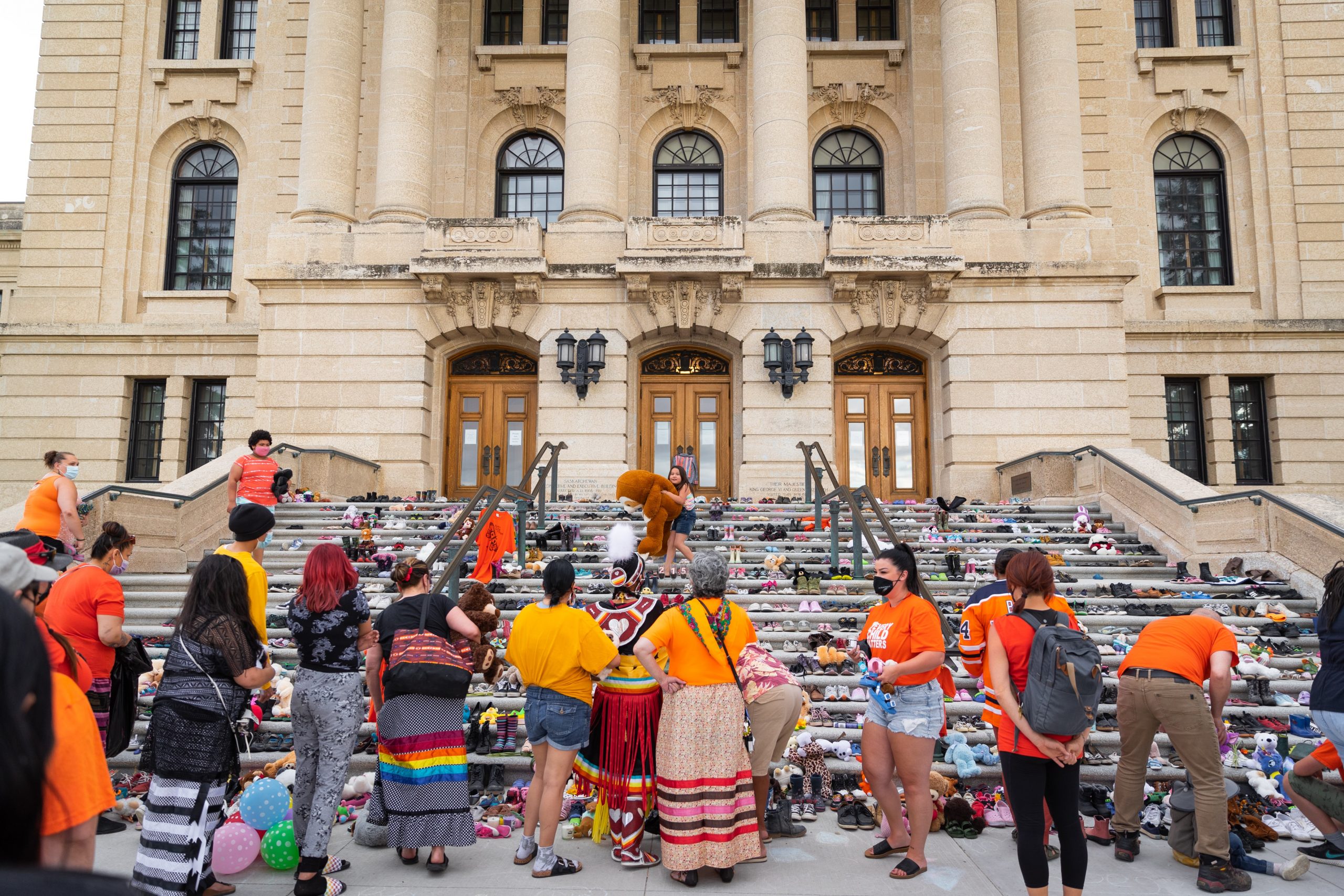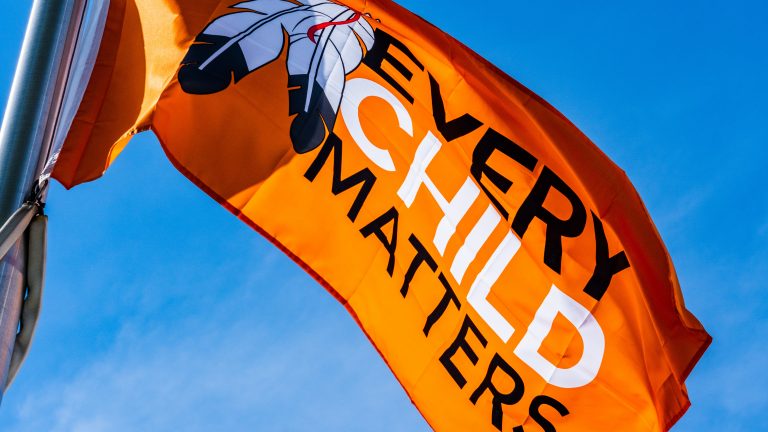September 30 is National Day for Truth and Reconciliation, which is to commemorate victims and survivors of Indigenous residential schools in Canada.
Between 1831 and 1998, 150,000 Indigenous children were separated from their families and forced to attend one of the 140 federally-run schools across the country.
While the goal may have been justified in people’s minds—assimilation into Canadian society—the methods were traumatic at best and resulted in essentially a cultural genocide, which many people are still coming to terms with.
The National Day for Truth and Reconciliation was officially recognized by the government in 2021, although it has been known colloquially as Orange Shirt Day since 2013. This was around the same time where hundreds of Indigenous children’s remains were found in unmarked graves at some of these residential school sites.

How to participate in National Day for Truth and Reconciliation
This day is set aside to recognize the lingering impact the Canadian Indian residential school system had on the victims and survivors, and the country as a whole.
There are many ways to participate, but here are a few suggestions.
- Buy and wear an orange shirt on September 30
- Tune into Joy Radio on September 30 for a range of programming to commemorate this day
- Participate in local events either in person or virtually
- Learn about the National Day for Truth and Reconciliation and why it matters
- Read the Truth and Reconciliation Commission of Canada: Calls to Action report
- Read books by Indigenous authors
- Take a course to learn more on Indigenous Canadians. The University of Alberta offers an Indigenous Canada course, which the public is able to audit for free
Participating in these ways may seem like they’re too small to matter, but every action can make a difference. And while finding our way to truth and reconciliation nationally may feel like an impossible and overwhelming task, we can rest in the assurance that God is bigger than any challenge we face and He is always working behind the scenes to make all things right.
That God was reconciling the world to himself in Christ, not counting people’s sins against them. And he has committed to us the message of reconciliation.
2 Corinthians 5:19
How can we bring about reconciliation in our own lives?
As Christians, we know complete reconciliation is possible through faith in Jesus Christ. Once our relationship is right with God, we’re empowered by the work of the Holy Spirit to also make things right with ourselves, with others and with all of creation.
Therefore, if anyone is in Christ, the new creation has come: The old has gone, the new is here! All this is from God, who reconciled us to himself through Christ and gave us the ministry of reconciliation.
2 Corinthians 5:17-18
But reconciliation does not happen without first acknowledging our wrongdoing, confessing our sins and being made right with God through forgiveness and repentance.
The process of reconciliation is all about restoring relationships. Due to sins (against God and one another), our relationships are broken. But the free gift of salvation through Jesus’ death and resurrection has reconciled us with God, and we can be restored. Where we were once enemies, we are now called friends.
Our job now is to live out this incredible message of hope and be shining examples of what it means to love others as ourselves.
Let’s determine to be ambassadors of truth and reconciliation, asking God to help us restore our individual relationships and bring about healing, one relationship at a time.













